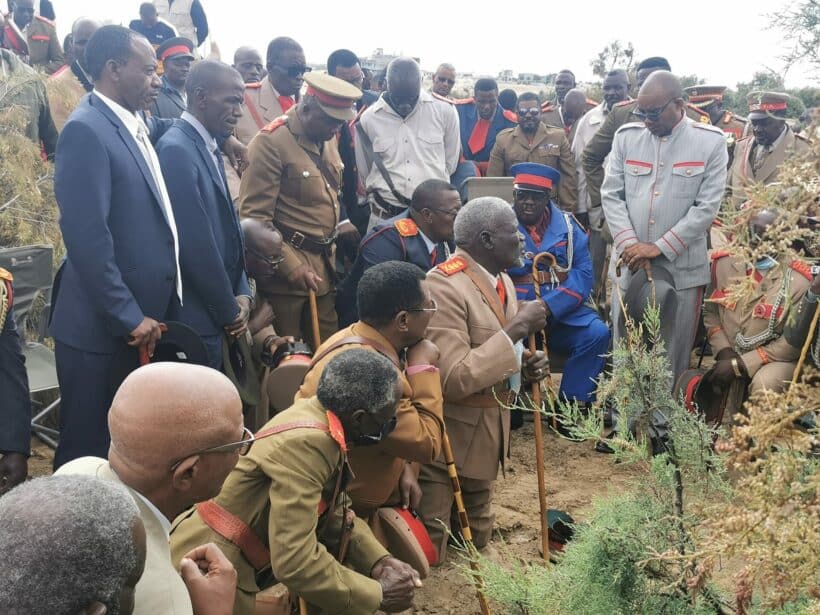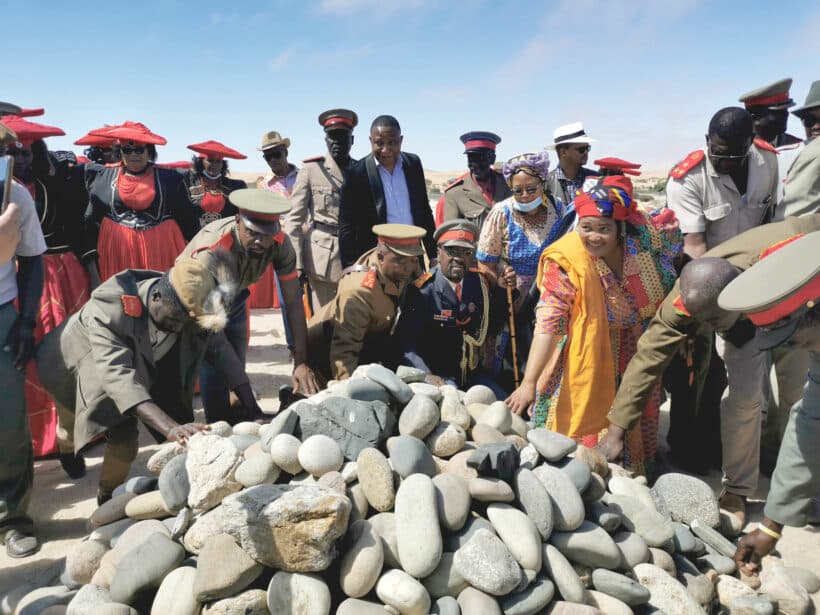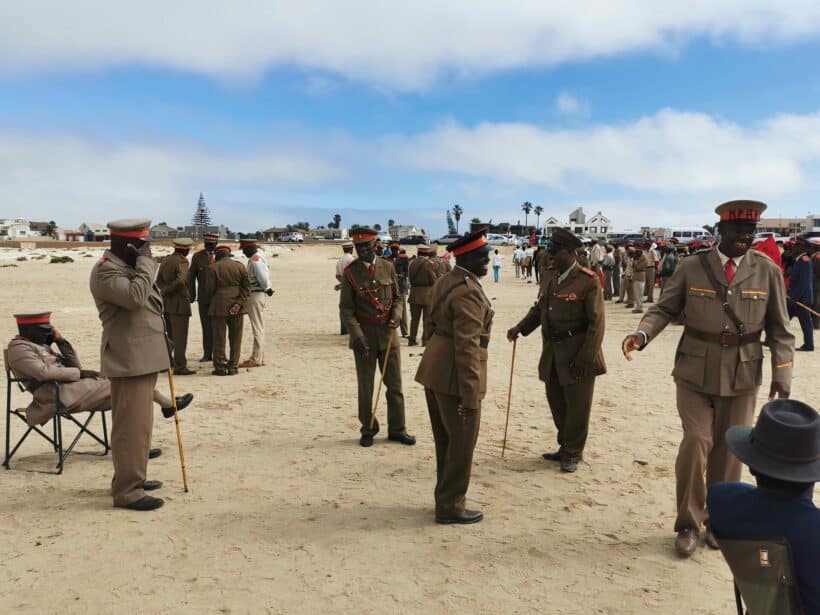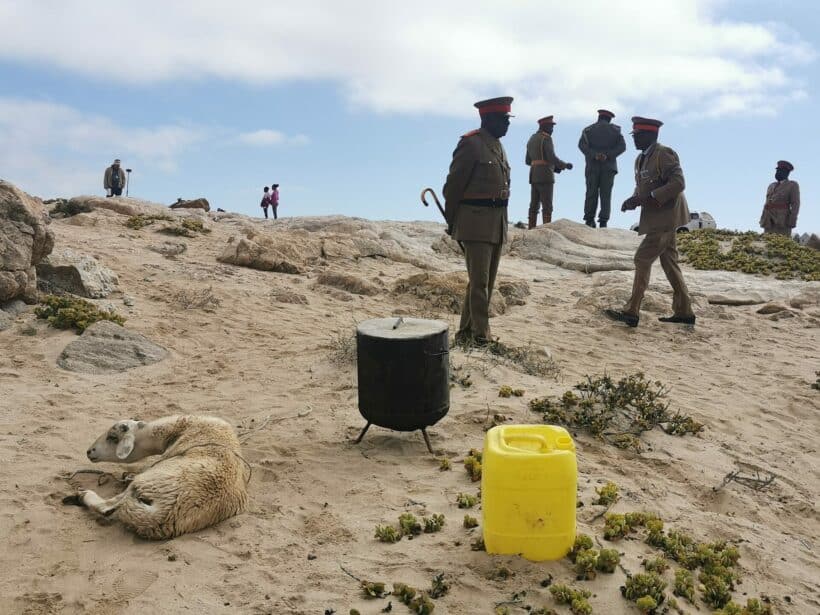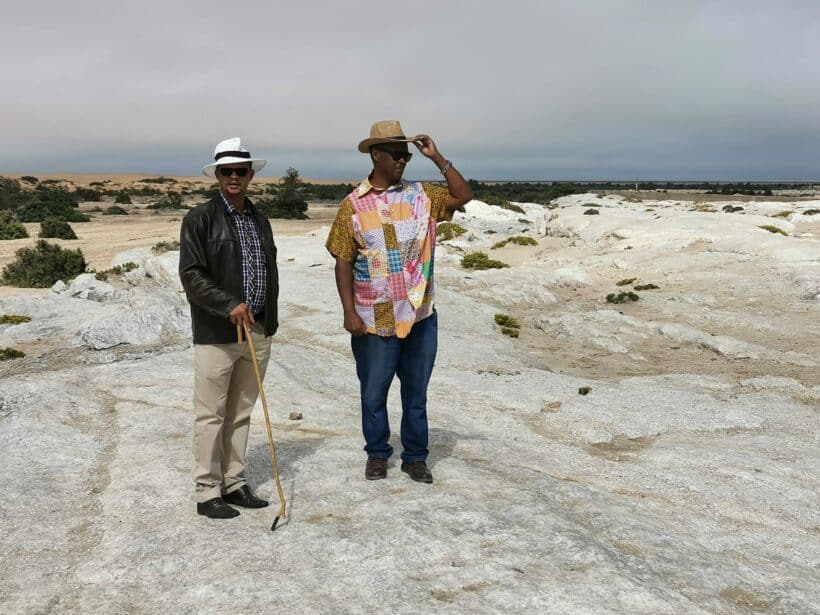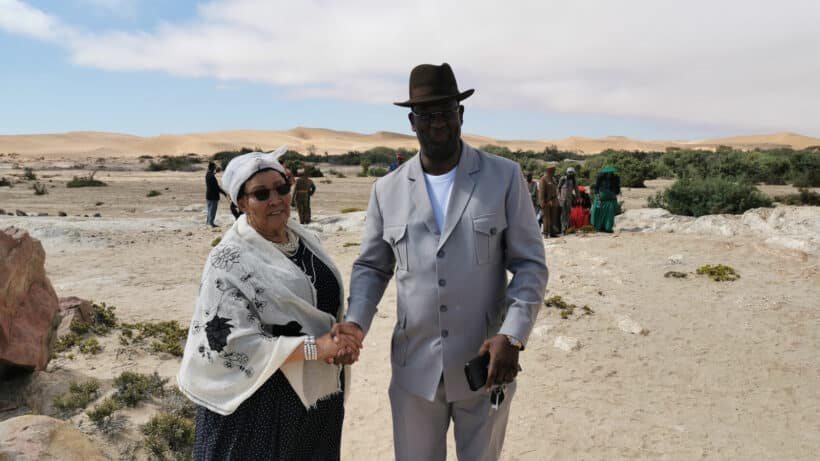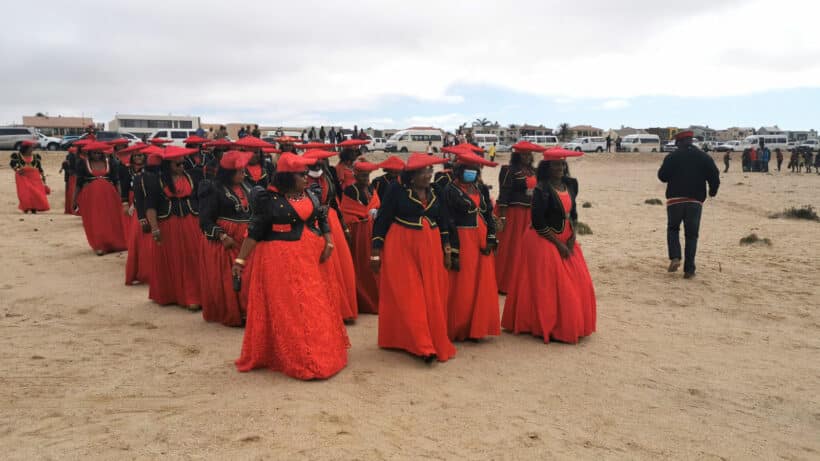Every year, descendants of the Nama-Ovaherero tribes gather at Swakopmund Memorial Park Cemetery in Namibia during the month of March to pay tribute to their ancestors who were victims of the genocide that took place from 1904-1908. Swakopmund, a town that hosted concentration camps during that time, witnessed the deaths of numerous people who were buried in unmarked graves.
The genocide of the Ovaherero people was ordered by General Lothar von Trotha, the supreme commander of the German forces in South West Africa (now Namibia) in October 1904 and lasted until 1908. It resulted in the killing of 65,000 or 80% of the Ovaherero tribe, whose population stood at 80,000 at the time. Additionally, an extermination order was issued in 1905 against the Namibia people, leading to the deaths of over 50% of the tribal men, women, and children.
As a result of this devastating history, the culture of these tribes has been significantly impacted, with some descendants even adopting German military uniforms as part of their cultural gear. The descendants of the genocide victims have long sought restorative justice and the restoration of the dignity of those who perished at the hands of the German Schutztruppe. However, Germany has yet to officially recognise what happened in Namibia as a genocide and offer an apology to the descendants.
The annual gathering is attended by traditional leaders from various Ovaherero, Ovambanderu, and Nama royal houses, as well as members of the Nama Genocide Technical Committee (NGTC). The ultimate goal of the descendants is to ensure that their ancestors are properly honoured and remembered and that justice is served for the atrocities committed against them.
Ester Mbathera is a freelance journalist from Namibia. “I am passionate about the field of journalism and the power it has to make a difference in the world. I chose freelancing because of the freedom it gives me to pursue stories that truly interest me.”


